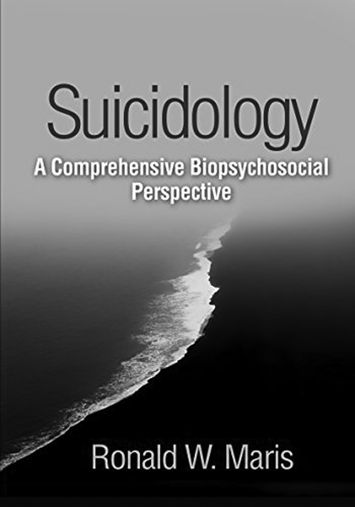
The prevention of suicide is a public health priority and, as such, the study of suicide is of broad and increasing interest. Suicidology: A Comprehensive Biopsychological Perspective is therefore timely as it brings together evidence from diverse disciplines to provide a solid grounding in the methods, theories, facts and figures of suicide research. The book is aimed at interdisciplinary undergraduate and postgraduate researchers, as well as novices in the field of suicide research, and this comprehensive text successfully meets the needs of this audience.
The first sections lead the reader on a journey, from the basics of theory and methodology, to individual factors associated with suicidal behaviour, and on to the role of mental illness, alongside the genetic and neurobiological basis of suicidal behaviours, all presented in easily digestible sections that flow logically from one to the next. The more technical and data-heavy sections are well balanced with case-study examples, often of well-known individuals, which may seem gratuitous to some readers, but does help to link the content to real-world contexts and remind the reader that behind the facts and figures are real people – a point that the suicide researcher should always keep in mind. The later sections of the book place suicidal behaviours within cultural and historical contexts and delve into special topics such as military suicide and suicide in prisons. Given that the main reasons for conducting research into suicide is prevention of suicidal behaviours, I was glad to see four chapters dedicated to the discussion of treatment, prevention and postvention.
However, it would be an oversight not to add a word or two of caution to the potential reader. While efforts have been made to include broader international perspectives, the content remains largely focused on US data and relies heavily on the work of the author. While not a problem in itself – the text reflects Maris's significant contribution to the field – the reader may wish to seek out more recent work from across the world or from their local region to fully capture current perspectives. The second point, and my only real criticism, concerns some of the language used in the text. The term ‘committed suicide’ appears multiple times (a term that has fallen out of use owing to the implied association with criminal behaviour) and what I assume is supposed to be an amusing anecdote relating to the phrase ‘significant udder’ is misogynistic and unwelcome in a contemporary text.
Provided that you can give these minor slips a free pass, this text is an excellent and comprehensive resource for the student or novice researcher, covering the fundamentals of suicidology.




eLetters
No eLetters have been published for this article.